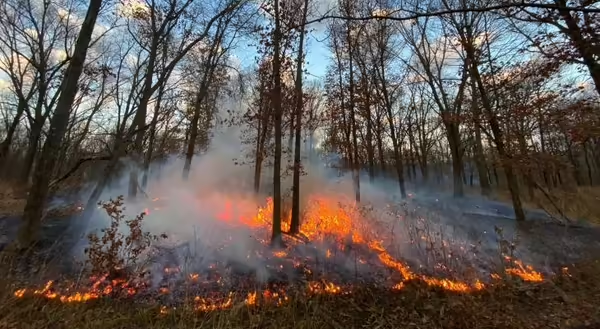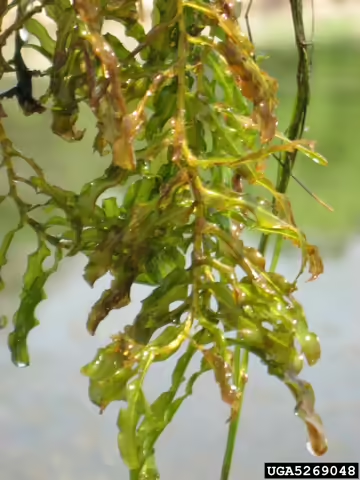
In 1946 Robert Allerton transferred the ownership of a large parcel of his estate near Monticello to the University of Illinois. The Allerton legacy gift is now used as a public park, a conference and retreat center, and a 4-H youth camp.
Now, 75 years later, nearly all of its 1,600 woodland areas are challenged by invasive plant species presenting many challenges to the professionals entrusted to its care.
The stewardship of the Allerton Estate is taken very seriously with the goal of reducing the invasive species, promoting native plants, and ultimately to increase the success of oak and hickory forest regeneration efforts.
Invasive species of concern: Multiflora rose (Rosa multiflora), privet (Ligustrum vulgare), and honeysuckle (Lonicera spp.).
Control methods: Prescribed burns (fire), mechanical (forestry mower), and chemical (spot use herbicide).
Alex Lourash is the Natural Areas Manager at Robert Allerton Park and is the point person on invasive species control within the park.
“Prescribed fire is at the top of our list when it comes to tools for managing invasive species," Lourash says. "Not only is it effective, but we are able to manage large tracts of the park in a short amounts of time."
Over the last four years, they have used a forestry mower unit to mulch understory that is dominated by invasive species. In areas that were burned after being mowed the regrowth from these invasive species was minimal.
In areas that fire will not travel, the use of backpack sprayers and herbicide are our second best tool when it comes to tackling unwanted species. Being able to walk around these areas and selectively spraying re-sprouting plants and mature plants that the forestry mower couldn’t get to makes for quick work.”
Curt Sinclair, Extension Specialist with Illinois 4-H has also long managed 4-H Memorial Camp resources inside the park. Woodland plots are burned, but the 16-acre lake used for recreational activities is also challenged by the aquatic invasive plant species Curly-Leaved Pondweed (Potamogeton crispus). The 4-H Memorial Camp program staff work with the Illinois Department of Natural Resources to assist with the herbicide treatment needed to keep this species in check.
The fact is that working to control invasive species will likely always be a part of the management of our natural landscapes. The more we learn the more we will need to share with each other moving forward.
Learn more about Illinois invasive species.
ABOUT THE AUTHOR: Curt Sinclair is an Extension Specialist in youth development and 4-H. He directs Illinois 4-H Shooting Sports and Environmental Education.
